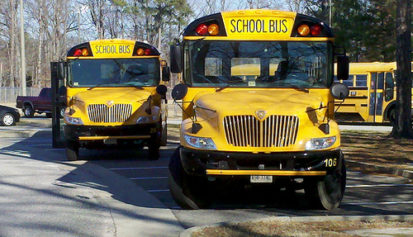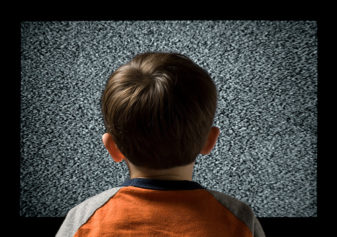You’d think that a home with a high degree of freedom might have a high degree of chaos — with chaos increasing with the number of children. The assumptions that lead to this thought lead naturally to the belief that reducing chaos requires curtailing freedom. Pursuing this line of reasoning, it is purely mathematical to think that as you increase the number of children, you need to increase the restriction of freedom. A school, therefore, needs to have a pretty restrictive discipline system to keep order with all those children running around. But this is not necessarily so; the fallacy in the above reasoning is embedded in the word “discipline.”
We were really good at fire drills at my last school. The San Francisco Fire Department loved to surprise us. Once a month a big, red truck would drive up in front of the school building. The doors would swing open and out would come three or four big guys in full ready-for-fire regalia. They would walk into the school building and tell receptionist Elsa to conduct a fire drill.
Elsa would get out the fire drill logbook, go to the red fire box on the wall, and pull down the handle. The harsh throbbing bark was so loud that some kids would have their hands over their ears as they walked calmly, in single file, without talking, down the hallways, down the stairs, and out the door onto the playground.
By the time I arrived on the playground I saw 300 silent children standing with their teachers in straight rows looking at me. My voice seemed very big in the silence as I asked each teacher if all were present. Often I would simply look into their eyes and get a thumbs-up.
When all were present or accounted for, I turned to the lead fireman and said, “We are all out,” and he would say “One-and-a-half minutes! Great job,” at which point I would say, “Great job everyone. Let’s get back to work.” Once, the fireman announced that we had the fastest time in the City of San Francisco.
I loved it. But my joy was not because by favorite venue has always been some military parade ground, or that I particularly like to see human beings in straight rows. My joy derived from our students’ ability to behave appropriately with a minimum of adult intervention. Their sense of freedom, which they express so often all day long in a variety of situations, includes an internalized understanding that the effective exercise of freedom requires discipline.
In the last forty years “discipline” has become tarnished. Take this simple test: which one of the following definitions from Encarta do you imagine was the operative definition at our school?
dis·ci·pline n
1. the practice or methods of ensuring that people obey rules by teaching them to do so and punishing them if they do not
2. a controlled orderly state, especially in a class of schoolchildren
3. the ability to behave in a controlled and calm way even in a difficult or stressful situation
4. mental self-control used in directing or changing behavior, learning something, or training for something
5. a subject or field of activity, for example, an academic subject
6. punishment designed to teach somebody to obey rules
7. the system of rules and punishment used in a particular religious denomination[1]
Right, number 4. Actually, our official definition was: “Those behaviors, habits or mental attitudes which help you accomplish your goals.”
It feels counter-intuitive to us these days that a demonstration of discipline is evidence of a commitment to freedom and individuality, but it can be. For of course, discipline is essential to the constructive exercise of freedom. Disciplines are necessary to accomplish anything…
Read More: geniusinchildren.org

